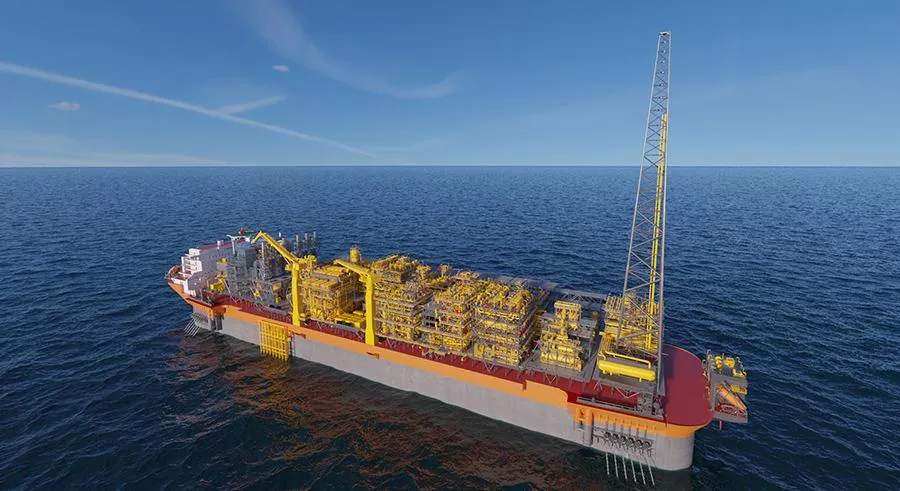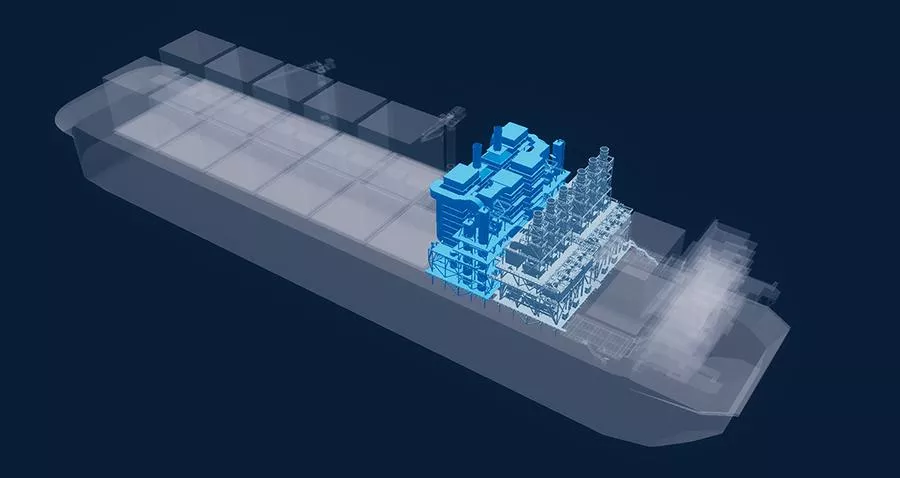On April 15, Mitsubishi Heavy Industries, Ltd. (“MHI”) announced the signature of a study with Single Buoy Moorings Inc., the subsidiary of SBM Offshore (“SBM”), for the application of CO2 capture modules on future Floating Production Storage and Offloading vessels(Note1) (“FPSOs”) for Petroleo Brasileiro S.A. (Petrobras). This study will be conducted toward typical implementation of CO2 capture solutions for FPSOs.

The module design for FPSOs is based on a combination of MHI’s proprietary “Advanced KM CDR Process™” CO2 capture technology(Note2) and SBM’s Fast4Ward® principles(Note3). The study will focus on capture of the CO2 emitted by onboard gas turbines, with analysis and evaluation to be carried out toward future commercialization.
MHI Group has been developing the “KM CDR Process™” (Kansai Mitsubishi Carbon Dioxide Recovery Process) and the “Advanced KM CDR Process™” in collaboration with the Kansai Electric Power Co., Inc. since 1990. As of April 2025, the Company has delivered 18 plants adopting these processes. The “Advanced KM CDR Process™” adopts the “KS-21™” solvent, which incorporates technological improvements over the amine-based “KS-1™” and offers superior regeneration efficiency and lower deterioration than the “KS-1™”, and it has been verified to provide excellent energy saving performance, reduce operation costs, and result in low amine emissions.

The study is the first achievement of a partnership agreement between MHI and SBM in September 2023(Note4). The agreement, a response to rapid expansion in demand for decarbonization, aims to accelerate business development in CO2 capture solution for FPSOs, to contribute to achievement of carbon neutrality on a global scale.
MHI Group has formally declared its commitment to achieving carbon neutrality by 2040 (MISSION NET ZERO), and the Company is now working strategically to decarbonize both the energy demand and supply sides. A core element of the Company’s “Energy Transition,” which targets decarbonization on the energy supply side, is the development of a carbon capture, utilization and storage (CCUS) value chain integrating diverse sources of carbon emissions with modes for carbon storage and utilization. Going forward, MHI Group will continue to proactively promote its CCUS business worldwide, applying its proprietary CO2 capture technologies, contributing as a solutions provider to reducing greenhouse gas emissions on a global scale, and developing further solutions that contribute to environmental protection.


